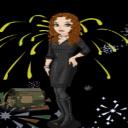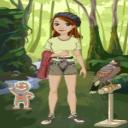Yahoo Answers is shutting down on May 4th, 2021 (Eastern Time) and beginning April 20th, 2021 (Eastern Time) the Yahoo Answers website will be in read-only mode. There will be no changes to other Yahoo properties or services, or your Yahoo account. You can find more information about the Yahoo Answers shutdown and how to download your data on this help page.
can anyone suggest some simple pre-school science projects i can do with my three to six year olds?
especially if they tie in with the national curriculum. any key stage 1 teachers out there? what are you doing with your pupils this term? any good books you can recommend relating to this subject please?
20 Answers
- Anonymous1 decade agoFavorite Answer
Wormeries. With various coloured soil and sand to let them watch the changes as the worms move around. It needs to be fairly narrow and preferably in clear plastic.
Growing mustard and cress on kitchen towels. Can see the development of plant and it can be eaten too.
Disolving food stuffs in water - test for how easy etc. Salt, sugar and some non soluble things too.
- momof3Lv 71 decade ago
Water is always a good one testing gravity which sink first the stone or feather ect. Filling, pouring weight ect.
Cooking consistancy have you ever used cornflour you can add food colour to give it a different colour, water and mix the consistancy is odd feels silky, slippy ect
Wax crayons always a good one for older children
Not sure how this will work in science but very good for maths, communication, numbers, art ect
find a dice template photocopy children to cut it out, place numbers on it and glue you then have a valuable lesson in many curriculum areas and watch them pick up maths not only quick but also fun which is the key I think to learning has to be a bit of fun.when one rolls dice then another add subtract ect
- 1 decade ago
Something like a cause and effect might work well with those age groups.. Are you going to be teaching them together? There is a big difference in what you can teach a three yr old and what you can teach a 6yr old.
Try something about gravity. Have them pick some items (safe things to drop) and see how fast/ slow they drop depending on how heavy/light they are.
I know it's not exactly science, but i used to do flashcards of general household items with my really young children at the day nursery i worked at.
At a young age, even comparing the sizes of similar items would be considered kinda sciency like three different sizes balls or something along those lines.
Hope this helps
Source(s): Used to teach at a day nursery - 1 decade ago
Chia pets are a good project for four year olds. My daughter did this at her school. Making ice cream can tie in with farm day. Put ice and salt in a larger ziplock bag. IN a smaller ziplock bag put milk, sugar, and vanilla. Shake until some ice forms in milk. Drink like a milkshake with a straw. Lactose intolerant children can use koolaid instead.
- How do you think about the answers? You can sign in to vote the answer.
- 1 decade ago
A great resource is stevespanglerscience.com. They have some really cool cheap supplies for science experiments that kids that age love. You can also get a magnifying glass or a jeweler's loup and look at anything and everything and draw pictures of what they see. It takes kids that age a while to get the hang of using a magnifier, but they really get into it.
Source(s): stevespanglerscience. com Private Eye curriculum - 5 years ago
The color wheel project is fun. Cut out a cardboard circle - poke a hole in it at the middle best effect is to nail it on a 2x4 stand so it can spin Make some paper circles the same size color the paper circles 1/2 and 1/2 different colors clip onto the cardboard spinner spin the wheels and "see" what colors produced from other colors (change the paper wheels to see different colors)
- Anonymous1 decade ago
Big bowl of water, lots of objects, have everyone guess whether they will sink or float and then test them.
A set of ice cubes in bowls, put them in different places round the room (next to the heater, sunny windowsill, somewhere cool etc.) and see which one melts first.
It's the wrong time of year, but you can get kits with a habitat and caterpillers, you feed the caterpillers and observe them get bigger, go into the chrysalis stage, and then when they hatch you let them go. Not expensive at all and the kids loved it.
Source(s): I used to help in my kids' playgroup. - 1 decade ago
try to grow chikens , they are so much fun and can live in a box!!!!!!!
Or if you live in a city then why not to take a wakl into a park and collect some leaves.. then at home make an application on the paper (for example a flower or a bird...) I used to love it when i was a kid!!!!
Don't know about curriculum or books, all you need is your fantasy
- Anonymous1 decade ago
Make moulds with plasticene, Play-do or clay.
From these moulds take Plaster of paris casts.
The moulds could be taken from coins, medals, shells, plastic animals, or kids hands or feet
The PofP casts can be painted.
It's interesting seeing how the mould makes a negaitive with backward writing etc and then the cast comes out positive again.
because you can make many casts, it can serve as an example of how industry make 1000's of the same thing, porcelaine etc.
- purple nurpleLv 41 decade ago
The seasons
Home weather station (keeping records and collecting rain/measuring)
Seeds, growing them, germination, watching them grow etc...
Mung beans grow fast, cress etc.
Usborne do a great science book
Go to Ottakars for free ideas in the home ed section
Join a home ed web forum



